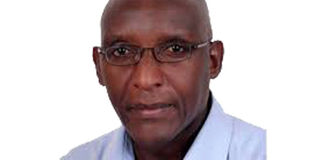Why wait for coronavirus to take basic hygiene seriously?

What you need to know:
Too late? Why wait until some epidemic threatens our people then start running around talking about basic hygiene issues such as proper hand washing?
Suddenly, Health minister Dr Ruth Aceng is a star. She is everywhere, every day, busy dispensing wise words on TV and radio and in the newspapers. ‘Wash your hands like this like this,’ she says. ‘Sneeze like that like that,’ she adds. ‘And cough like this like this,’ she goes on and on.
Good work, good doctor. But tell me: Why should I listen to your words today when the world is groaning under a vicious attack by the coronavirus when you did not listen to me when I said the same words long before the pandemic reared its deadly head in China in December 2019? In the Daily Monitor of June 5, 2019, I published an article under the title, ‘Make healthcare number one campaign issue.’
I wrote: “We need to hear more voices on the benefits of disease-prevention, physical exercise, balanced diets and a good environment for maintaining good health. These are the things that many of our people in the countryside need to know about. I know this because I live in a village where there is no doctor; citizens seem to get by purely by chance.”
I quit Kampala in June 2017, and I have since lived in my rural home in Kumi District, so I know what I am talking about.
I wrote, further: “Let’s talk about ordinary things threatening the health of citizens. Let’s tell people not to share accommodation with livestock to prevent spread of zoonotic diseases. Tell people not to defecate in bushes to prevent diarrhoea, cholera and other infections. Tell people to boil drinking water to prevent typhoid. Teach people how to yawn, sneeze or cough in public to prevent spread of airborne diseases.”
There you have it. What Dr Aceng is saying now is what village health teams should have already been telling Ugandans on a daily basis. This has not been happening for the simple reason that we do not seem to have a Ministry of Health. We seem to have a ‘ministry of medicine’, without the medicine many of our people need to keep healthy.
The team Dr Aceng leads even seems to ignore the World Health Organisation’s declaration that health is “a state of physical, social and mental wellbeing, and not merely the absence of disease.”
When will these medics of ours rise to the occasion to recognise healthcare truly as efforts made to maintain or restore physical, mental or emotional wellbeing of our people as part of their daily routines? Why wait until some epidemic threatens our people then start running around talking about basic hygiene issues such as proper hand washing?
In my reckoning, the Ministry of Health is next in incompetence to Parliament, the largest gathering of busybodies in Uganda.
If MPs had any remote inclination to contribute meaningfully to proper healthcare in Uganda, they would, for example, pass laws against people who have no pit-latrines in their households. National toilet coverage in Uganda is less than 80 per cent, yet MPs shamelessly go to even homes without pit-latrines to seek votes!
With this kind of warped reasoning, Ugandans must brace for bleaker times ahead, virus or no virus.
Dr Akwap is a senior lecturer at Kumi University.


